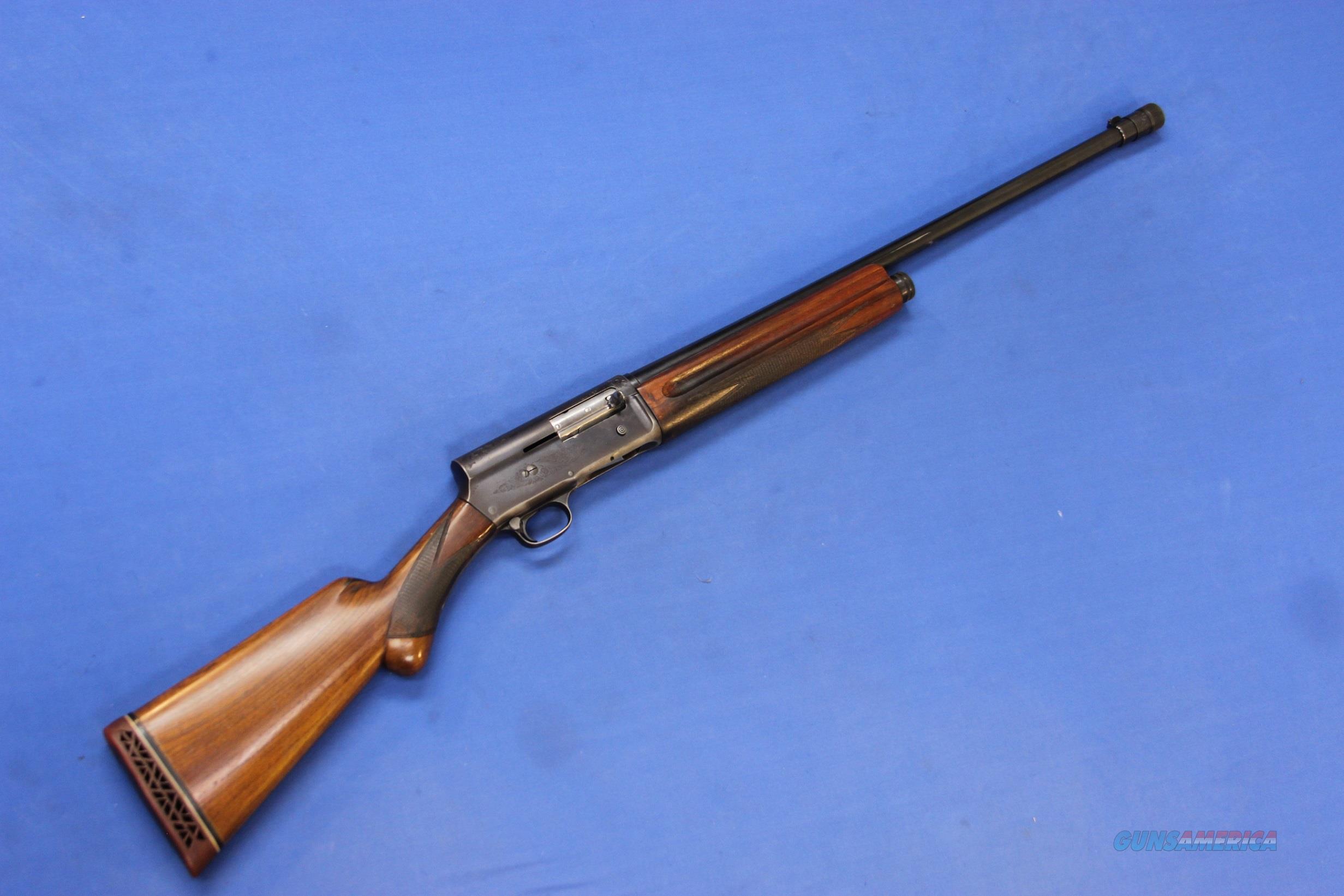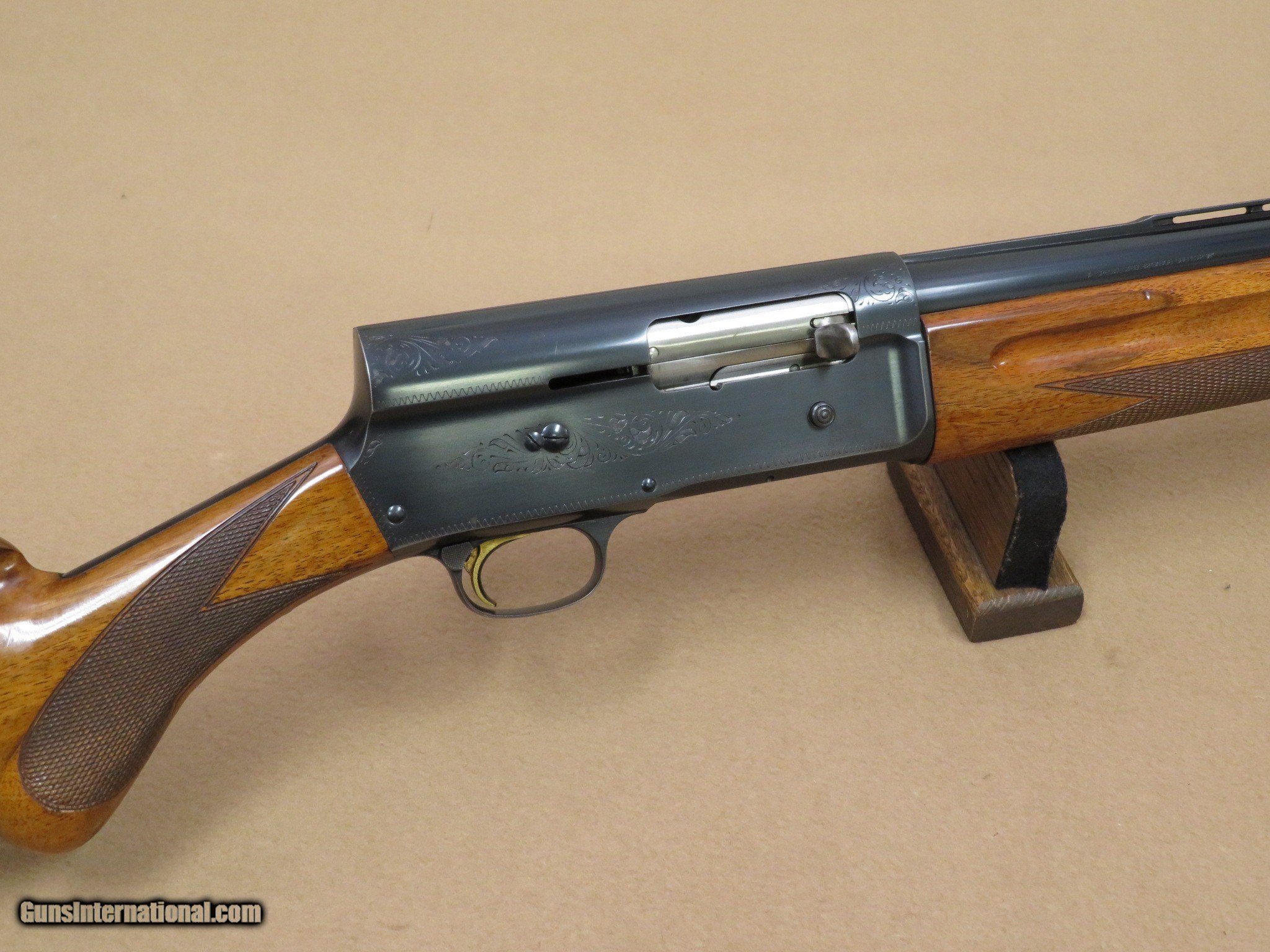Belgium Browning A5 For Sale – This sense of history and individuality is part of what makes second-hand shopping so appealing. What was once limited to boutique shops or high-end department stores can now be purchased from the comfort of one’s home. The appeal of finding a hidden gem, something that has been cherished by someone else and is now available for a new owner, is a part of the allure of second-hand goods. One of the most popular categories of second-hand goods for sale is clothing. Both buyers and sellers should approach transactions with honesty and transparency to ensure a smooth exchange. Beyond practical reasons, the appeal of quality goods for sale also lies in the sense of pride and satisfaction that comes from owning something well-made. For the seller, the goal is to achieve the highest price possible for the business, while for the buyer, the goal is often to secure a fair price that reflects the true value of the business. These concepts, they say, are too sacred, too important to be reduced to mere transactions. Many sellers of second-hand electronics offer refurbished items, which have been inspected, repaired, and restored to a like-new condition. For many, purchasing second-hand goods is not just about saving money, but about embracing sustainability, supporting a circular economy, and contributing to a more environmentally conscious world. The concept of “for sale” stretches beyond physical items. The materials, labor, and expertise that go into crafting these items naturally make them more expensive. These items are often crafted with a sense of purpose, where every stitch, joint, and component is carefully considered to create a product that not only functions well but looks beautiful in the process. Conversely, periods of economic growth may lead to more businesses being sold due to increased valuations and higher demand. Online platforms such as eBay, Craigslist, and Facebook Marketplace have made it easier than ever for individuals to sell their unwanted items to a global audience. For fashion-conscious individuals, buying second-hand is a way to express their personal style while also supporting sustainable practices. It’s easy to understand why people seek out quality goods for sale. These professionals help connect buyers with sellers, ensuring that both parties are well-informed and that the transaction process is as smooth as possible. The rise of online platforms dedicated to the sale of second-hand goods has also played a significant role in the growing popularity of pre-owned items. There are communities that exist outside the realm of traditional commerce, where sharing, collaboration, and mutual support take precedence over profit.

Browning A5 Belgium 20ga for sale at 932679544
Fill your cart with colorreturns made easywe have everything>80% items are new

Browning A5 MAGNUM 12 Belgium made 1965 311/2" FULL, Nice! CA OK!
Fill your cart with colorreturns made easywe have everything>80% items are new

Browning A5 Belgium Light 20 GA.
Fill your cart with colorreturns made easywe have everything>80% items are new

BELGIAN BROWNING A5 16 GAUGE for sale at 946576574
Fill your cart with colorreturns made easywe have everything>80% items are new

BROWNING BELGIAN A5 MAGNUM 20 GAUGE SHOTGUN (INVENTORY9796)
Fill your cart with colorreturns made easywe have everything>80% items are new

3" Belgium Browning Magnum A5 20 ga… for sale at
Fill your cart with colorreturns made easywe have everything>80% items are new

ARMSLIST For Sale Browning A5 Belgium 12ga
Fill your cart with colorreturns made easywe have everything>80% items are new

1965 Belgian Browning A5 Light Twelve 12 Ga. Shotgun 30" Barrel Full
Fill your cart with colorreturns made easywe have everything>80% items are new

Browning Belgian made A5 12 gauge
Fill your cart with colorreturns made easywe have everything>80% items are new

Browning A5 Light Twenty 20 Gauge BELGIUM, EUROPEAN WALNUT, 99
Fill your cart with colorreturns made easywe have everything>80% items are new
Whether it’s a car, a house, or a simple piece of furniture, there’s a process that unfolds. Influencers sell their attention, their opinions, their lives — all of it has become a form of commerce. From the most trivial items in a dollar store to the most precious works of art in a museum, everything can be assigned a price. Some businesses are sold because the owner is ready to retire, while others might be sold due to financial difficulties or changes in the owner’s personal or professional life. The truth is that the idea of quality is deeply rooted in the philosophy of craftsmanship, heritage, and trust, which explains why certain items, often categorized as quality goods, tend to be prized more than others, even when they may come with a higher price tag. People are not just looking for things that work well; they want products that elevate their environment and their experiences. It’s easy to understand why people seek out quality goods for sale. On the other hand, buyers may seek to negotiate lower terms based on the findings from their due diligence or their assessment of the business’s future potential. While the sale of a business can provide a valuable opportunity for both parties involved, it also carries risks. An item’s worth can be subjective, influenced by the desires, needs, and circumstances of both the seller and the buyer. Additionally, there is the challenge of integrating the business into their existing operations and ensuring that it continues to thrive under new ownership. Due diligence is a crucial part of the process, where the buyer investigates the business thoroughly to ensure that there are no hidden liabilities, potential risks, or operational inefficiencies. The first and most obvious reason is the tangible benefits they offer. In conclusion, the market for second-hand goods for sale is an ever-growing and dynamic space that offers numerous benefits to both buyers and sellers. Some goods, like a fine Swiss watch, carry decades or even centuries of tradition, built on a reputation of precision and excellence. In this digital age, it often feels like there’s no such thing as privacy anymore, and that’s because we’ve essentially agreed to sell pieces of ourselves in exchange for recognition, affirmation, or even money. These items are often crafted with a sense of purpose, where every stitch, joint, and component is carefully considered to create a product that not only functions well but looks beautiful in the process. This sense of history and individuality is part of what makes second-hand shopping so appealing. Everything for sale. While buying and selling second-hand items can come with its challenges, the rewards—both financially and environmentally—make it a worthwhile pursuit for many people.
These goods, ranging from clothing to furniture, electronics to books, offer people the chance to find items they need or want at a fraction of the cost of new products. Similarly, during periods of economic growth, there may be a greater willingness to spend on luxury second-hand items, such as high-end fashion or collectible items. The very notion that everything can be bought and sold creates a society where inequality is not just accepted, but ingrained in the very structure of the economy. The struggle is not in resisting the marketplace entirely, but in finding balance, in ensuring that the things that truly matter cannot be bought, sold, or traded. In this world, emotions can feel like products, available to be consumed at will and disposed of when they no longer serve a purpose. People place their belongings for sale for many reasons. This shift in mindset has contributed to a growing acceptance and even celebration of second-hand shopping, making it a mainstream activity that is not just about saving money but about making more thoughtful and responsible choices. People often feel like they are for sale, too, in various ways. It’s a moment of transition, and as with all transitions, it brings with it both excitement and uncertainty. The due diligence process helps the buyer understand the risks involved, the company’s market potential, and any legal or operational hurdles that may exist. In addition to offering unique items and affordable prices, many second-hand stores also serve an important social and community function. This is particularly evident in industries such as furniture, clothing, and electronics. For sellers, the market for second-hand goods offers an opportunity to declutter their homes and make some extra money. Historically, many products were made by local craftsmen, and there was a direct relationship between the creator and the consumer. Many high-quality products come with a rich history, whether it’s the legacy of a renowned brand or the personal touch of a local maker. But is this a reflection of reality? Or is it an illusion we’ve created, an idea we’ve accepted in order to make sense of a world that increasingly revolves around consumption and profit?
At the core of this idea lies the assumption that everything, no matter how unique or rare, can be exchanged. Are there things that should be kept beyond the realm of trade? Or has the marketplace — with its insatiable demand and promise of exchange — seeped into every facet of our being?
If everything is for sale, then the concept of value itself becomes fluid, subjective, and often manipulated. It’s a phrase that, at first glance, may seem simple and straightforward. But the financial aspect is only one part of the equation. For instance, when someone is job hunting, it can feel like they’re placing themselves on the market, waiting for the right offer.